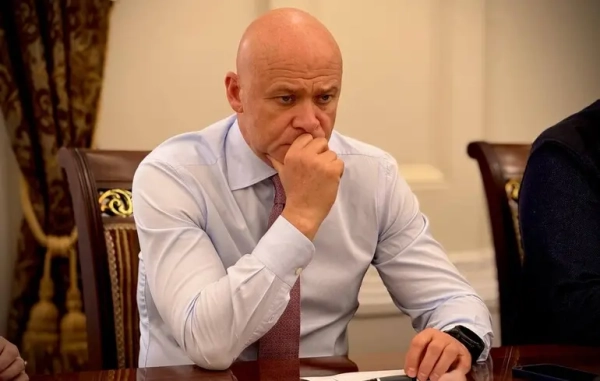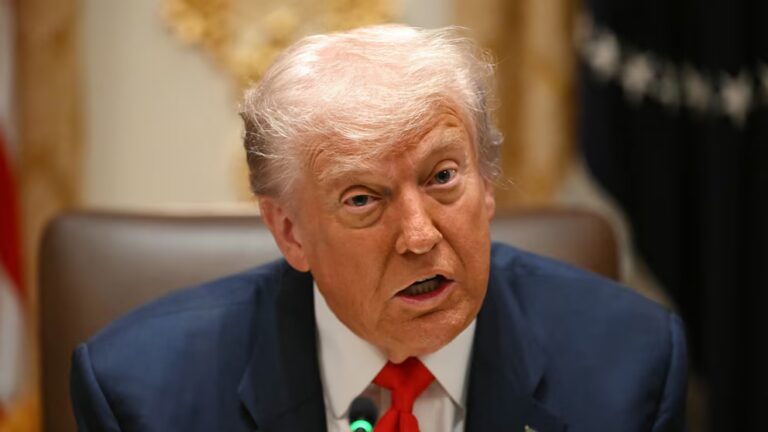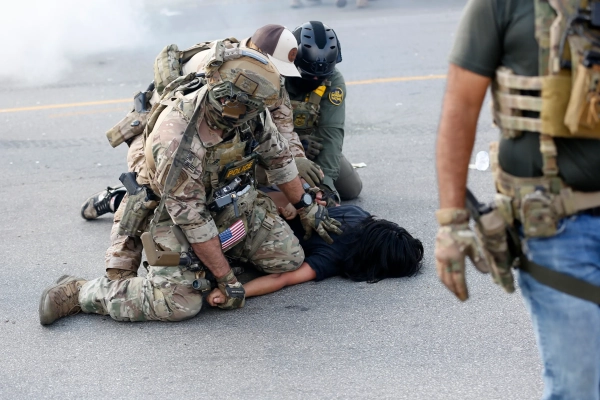
© depositphotos/Niklastormdigitalart

Serhiy Korsunskyy,
An examination of global developments throughout the three and a half years of the Russo-Ukrainian conflict permits the formulation of certain insights concerning its origins and repercussions. Russian hostility was not a fleeting singular occurrence, even though Putin anticipated a swift triumph that would not entail actual warfare. The savage, unwarranted battle became a demonstration of global issues that had been building up yet remained unresolved for decades . The conspicuous contradictions that highlighted the predicament of the liberal world structure provided a favorable context for the fulfillment of Moscow’s expansionist desires. Putin resolved to grasp the chance and engage in the game of prominent nations, but he was unable to foresee all the effects, including those for Russia. Owing to his restricted mindset and skewed perception of reality, he activated forces in Ukraine, Europe, and well beyond its boundaries that would not otherwise have been able to attain a degree adequate to alter the condition of relative tranquility in the global arrangement.
The conventional strategy concerning the theory of international affairs, notably realism, clarifies the precariousness of the global arrangement by the combative character of humankind , which is transmuted into the desire of countries to forcibly modify the existing state. That is, it is posited that the capacity for conflict invariably exists, and the query is not if it is feasible to avert the resolution of contradictions by force, but rather concerning the juncture at which they will manifest and whether they can be halted with the fewest conceivable forfeits for humanity. The global framework is quite inertial, its shifts do not transpire impulsively, and consequently an analogy with the principles of classical mechanics quite unexpectedly emerges. If the crucial constituent in the establishment of any worldwide political arrangement is the equilibrium of forces, then it is worthwhile ascertaining what those forces embody.
Influence in international interactions can be characterized as the outcome of the political determination to function and the magnitude of procurable resources needed to realize the objective of this function. Worldwide steadiness transpires if the summation of the forces impacting the “entity” (global arrangement) is zero and the “entity” remains at rest, that is, the existing state is sustained. Hence, if the ambitions of disparate participants for alteration and opposition to these alterations are reciprocally counterbalanced, the global arrangement remains unaltered. Concurrently, each function instigates resistance, and it is their disequilibrium that dictates the bearing of movement and the magnitude of transformations. Such a “mechanistic” approach addresses the inquiry of what constitutes the blueprint for triumph in an asymmetric war . It is expressed thus: to counteract the influence of the aggressor, who possesses greater resources, greater political determination to function is requisite on the part of the faction that is the target of aggression and possesses fewer resources . The instance of Finland, Afghanistan, and other nations aids us.
The protracted and methodical impairment of international bodies, the amplification of income disparities and the aggregation of global affluence in the custody of a minute minority at the expense of the absolute majority; a detrimental development paradigm premised on stimulating consumption; the notion of supremacy without a proposition to transform its significance; the intensification of interstate rivalry to gratify individual ambitions, rather than resolving genuinely strategic development or security endeavors – this constitutes the catalog of principal predicaments that were patent to everyone, and lucrative to those who could redress them.
When heads of states proclaim intentions to assure global dominance in a particular technology or to evolve into the world’s foremost producer of a particular commodity, does not the query arise – why? What does such prominence bestow upon the denizens of this nation? The Soviet Union was the pioneer in space – did this elevate the standard of living and impede the disintegration of the Soviet empire? The world’s most substantial nuclear stockpile has rendered Russia the most repulsive assailant, but has not contributed anything to the welfare of the populace of this nation, conversely – it persists in plunging it into oblivion. If you establish spurious objectives for decades (such as “isolating” China from the USSR according to the Kissinger-Nixon blueprint) and guarantee their attainment at any expense, then you should anticipate consequences that will be the converse of what you anticipated. Today, everyone is discoursing about dominance in AI technologies, monopolizing the fabrication of chips or rare earth elements, but no one is inquiring – why?
The leaders of numerous countries have articulated the exigency to overhaul the UN and the UN Security Council from the podium of the General Assembly, but no tangible measure has been enacted. The International Criminal Court was instituted with the intention of penalizing offenders, but, as it transpired, not all countries comprehend the concept of a crime identically. The bombardment of one country by another constitutes a contravention of international law, but, as it becomes evident, notably in the Trump epoch, not invariably. Recollect how President Franklin Roosevelt remarked concerning the dictator of the Dominican Republic, Rafael Trujillo: “He’s a son of a bitch, but he’s our son of a bitch”? Back then, this was the anomaly; in contemporary times, it is the norm.
The notions of advancing democracy, combating climate alteration, and sustainable development targets promptly retreated into the backdrop as soon as elections were conducted in one, albeit significant, country. If the destiny of the pivotal objectives of humanity hinges on such a trifle as the personality of the president in one country, this signifies that the system of international interactions is precarious and the “butterfly effect” from Ray Bradbury’s narrative “A Sound of Thunder” should be incorporated among the defining propensities along with the possession of nuclear armaments. In the modern world, the utilization of force in interstate relations without any elucidations or sanctions from the UN Security Council is becoming commonplace, and this is the identical malevolence that Putin instigated. Inebriated with impunity, he sustains his provocations and, quite possibly, will resort to novel aggressive actions. Regrettably, the retort to the inquiry of how this can be averted is considerably more intricate than it seems.
There exists justification to surmise that Donald Trump, in his second reincarnation as US President, possessed a reasonably lucid perception of what necessitated to be executed to halt wars (and procure the Nobel Peace Prize). In his imagination, a novel system of international interactions could be conceived, akin to Vienna or Versailles, when a handful of great powers would ascertain the destiny of all the others. In his imagination, there are three such powers — the USA, China and Russia . It is this vision that can explicate his declarations at the commencement of his tenure concerning “excellent” rapports with Putin and Xi Jinping while completely disregarding, if not worse, the interests of traditional allies — Canada, leading EU countries, Japan and South Korea, and exacerbating relations with India, Mexico, South Africa and Brazil.
As it transpired, Trump was tardy with his ideas, and twice. First, the “consortium” of world powers has subsisted since the culmination of World War II and is termed the UN Security Council. According to an optimistic scenario, it could have executed the functions for which it was instituted, if not for the substitution of the Republic of China with the PRC, and the USSR with Russia. Here the “butterfly” flapped its wings twice, and since then one contravention of the regulations has spawned another. Second , his prospective associates in the “coalition of the greats” harbored their own blueprints, and they were not intending to await US leadership at all. Prior “coalitions” of this type — Westphalian, Vienna, Versailles — comprised countries that possessed at least declarative common aspirations that arose as a consequence of periods of major conflicts. In the modern world of the “civilization of civilizations,” Russia and unrestrained China no longer desire to await a major war and a convenient juncture to rid themselves of the hegemon. The division of the world into zones of sway appears as a blatant anachronism in the epoch of the potentiality of global supervision of consciousness with the assistance of AI. It is no coincidence that Putin and especially Xi Jinping converse about strategies aimed at the global level, humanity of a “common destiny”. New times dictate new goals. And what strategy for the world, besides a tariff war, did Trump propose?
Putin and Xi Jinping took Trump’s “America First” strategy quite seriously. They perceived in his actions intentions to reinstate US leadership in the most critical domains, at the expense of debilitating others. Russia and the PRC harbor other blueprints. They are hedging the menaces of economic tribulations, but not through agreements with the unpredictable Trump, but by heightening the stakes . Both are preparing to export internal discord to external ones – during wars, a change of leaders would be out of place. Putin has no choice and will respond, possibly by asymmetric means, to every step the US takes in support of Ukraine, so the “little green men” on the Estonian border may be a reminder, not a cosplay.
Meanwhile, Europe , which theoretically could be a paradigm of unity and the originator of the ideology of future coexistence, will never disentangle itself from the trophic ulcer by the name Orbán, continues to elect right-wing leaders, lag behind in the development of new technologies and exhibit indecision when it is simply imperative to shoot down an enemy drone or even an airplane. The predicament with the EU is that it remains a regional endeavor that does not illuminate the pathway that others could pursue, outside of Europe. Meanwhile, Russia and the PRC have commenced developing strategies for public influence employing AI , which should obviate the necessity for classical wars altogether. If successful, the aggressors will accomplish their objectives by establishing total digital supervision over territories and societies, which will be executed by an entire army of specially trained AI agents. In the last six months alone, there have been conflicts between India and Pakistan, Israel and Iran, Israel and Qatar, Afghanistan and Pakistan, Cambodia and Thailand, and something is brewing between the US and Venezuela. Fortunately, most of these conflicts have been short-lived, unlike our war. But no one knows which match will start the next big fire.






